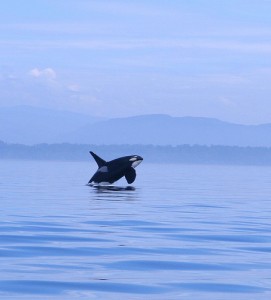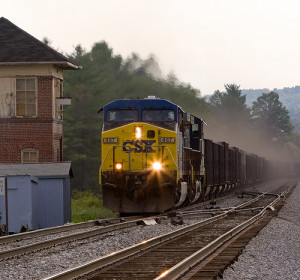We have much more to do and your continued support is needed now more than ever.
Protect the Northwest’s Endangered Orcas from Dirty Coal
The Pacific Northwest is known for a lot of things – the Cascade range, clean energy and the high-tech sector, salmon and killer whales – but until recently “Coal” wasn’t in the conversation. That is changing, as a simmering fight on coal exports comes to a boil this year.

The United States currently exports about 74 million tons annually, but producers like Arch Coal and Peabody Energy (two of the biggest polluters on the planet) are targeting new and expanded port facilities in the region, which would allow them to double or even triple that amount.
Coal: A dirty business
As you probably know, coal is one of the dirtiest sources of energy on the planet: it has a huge carbon footprint, contains mercury and other toxic materials, and mining is incredibly destructive to wildlife habitat. It certainly doesn’t fit with the clean, green values of many people in the Pacific Northwest; in fact, Washington state recently negotiated a deal to close down its last remaining coal-fired power plant by 2025.
So, understandably, the port expansion proposals have alarmed locals and caused a heated debate on the merits of the projects. Proponents say that it would bring jobs to the area. Opponents point out that coal export terminals employ relatively few people and are major sources of local air and water pollution.
To make matters worse, rail traffic would increase dramatically: if the ports at Cherry Point and Longview are built, local communities would be forced to deal with 40 extra mile-long coal trains rattling through every day, trailing coal dust and snarling traffic — and damaging fisheries, cropland, and other valuable natural resources.

Stand strong with us against increased coal exports
This is a big deal, and it’s happening now. National Wildlife Federation has partnered with several dozen local and national groups opposed to the coal terminals, in a coalition called Power Past Coal. Together, we aim to protect public health, wildlife, and a clean energy future for the Pacific Northwest. But we need your help! Click on the link below to keep Orcas and other wildlife safe from the threat of coal pollution.
![]() Make sure your voice is heard! Sign the petition to stop construction of new coal terminals on the Pacific coast.
Make sure your voice is heard! Sign the petition to stop construction of new coal terminals on the Pacific coast.
For more information on coal exports, visit NWF.org or PowerPastCoal.org.





















